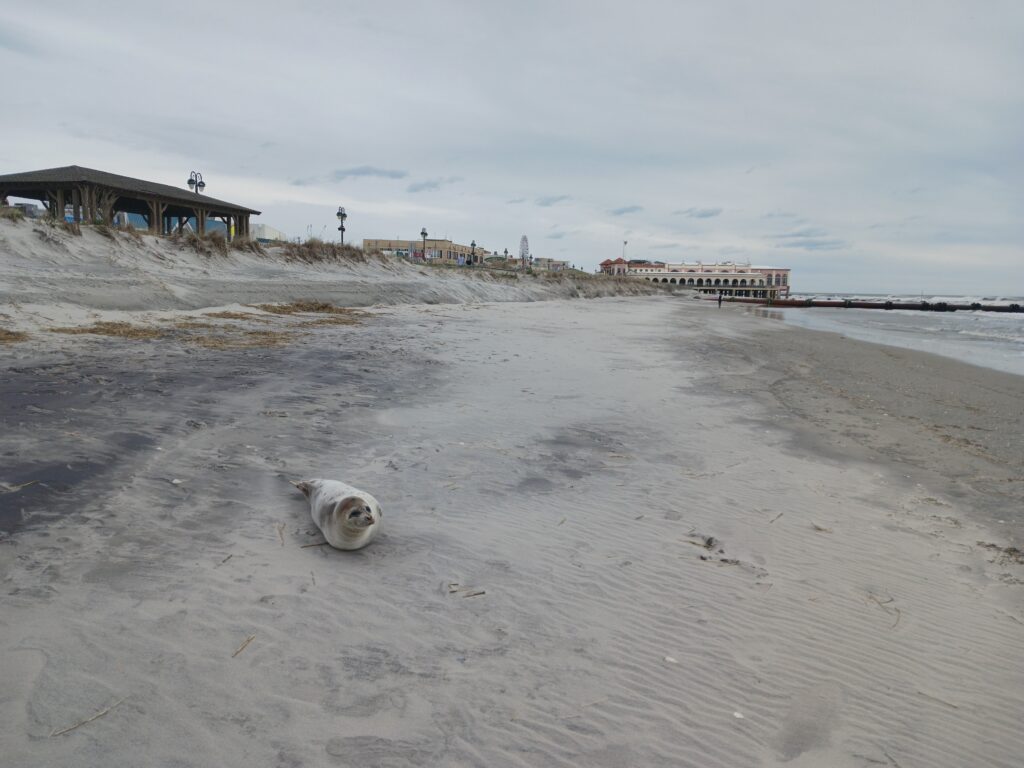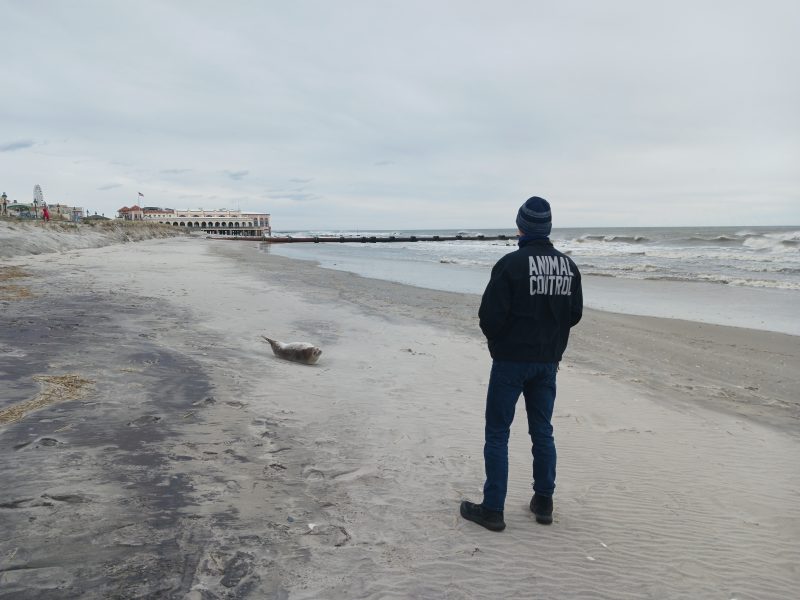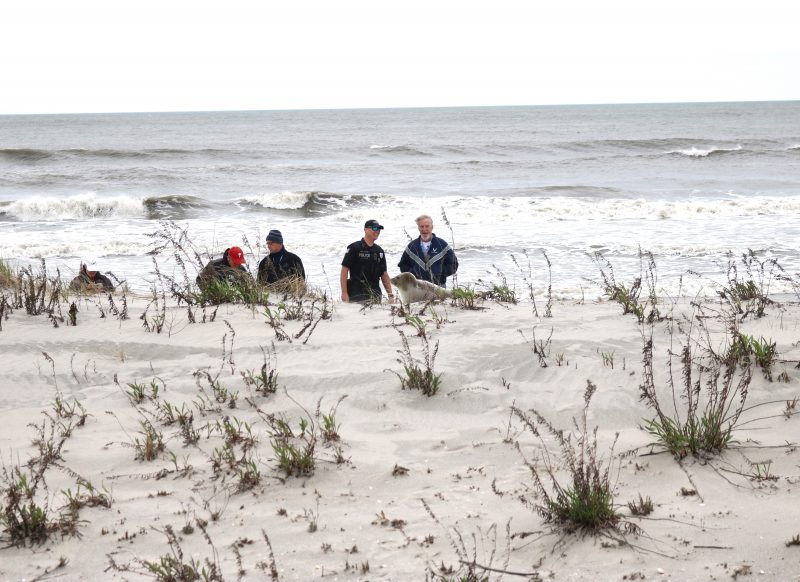
By MADDY VITALE
As crowds gathered on the Ocean City Boardwalk on Saturday afternoon to watch the city's Doo Dah Parade, spectators turned their attention to the beach, specifically the dunes at 10th Street, where a harp seal appeared to be in distress.
The seal was rolling on its side, unable to sit upright for an extended period of time and unable to get back down to the water.
But later in the day, the seal, which was evaluated and deemed perfectly healthy, was picked up by the Marine Mammal Stranding Center (MMSC) experts from Brigantine and was going to be returned to the ocean.
At about 12:15 p.m., Ocean City police officers, along with the city's animal control personnel, responded for the call of a stranded seal. The MMSC was notified.
A couple of hours after the call, MMSC staff arrived, evaluated the seal and picked it up with the goal of returning the mammal to the water.
We went and picked it up and we will relocate the seal into the ocean, an MMSC staff member said in a phone interview, adding that he was not aware of the seal's gender.
Prior to the MMSC arriving, the stranding center sent a volunteer down to monitor the seal, the staff member said.
We are aware of the situation and we are en route, he said. We have volunteers down there monitoring the seal. He appears to be perfectly healthy.
Over the past few months, the MMSC has been near capacity with rescued seal pups recovering from injuries or sickness.
Currently, MMSC has 16 grey and harp seals under its care. The latest seal transported to the center for rehabilitation is a grey seal pup discovered on April 5 in Island Beach State Park that had a length of polypropylene line embedded in its neck.
Other seals housed at the center are being treated for a variety of conditions ranging from injuries to being undernourished and weak.
MMSC explains on its website about the arduous journey for seal pups during their migration and why some of them need to be rescued. During the migration in the winter months, pups make a long swim from their birthing grounds in New England and Canadian waters to New Jersey.
Along the way, these recently weaned pups are learning to hunt for their food on their own and evade predators. By the time they reach our beaches, they need their rest, and some pups that have not fared as well as the others on their journey, need MMSC's help, MMSC said.
Grey seals nurse for only about two weeks, and once weaned they are completely independent. They weigh about 30-35 pounds when they are born and by the time they are weaned, they can triple their body weight. The pups will live off of their fat reserves as they learn to hunt for fish on their own, according to the MMSC website.
To donate to the Marine Mammal Stranding Center, visit them on Facebook at https://www.facebook.com/njmarinemammal
For the 24-hour Marine Mammal Stranding Center hotline, call 609-266-0538.